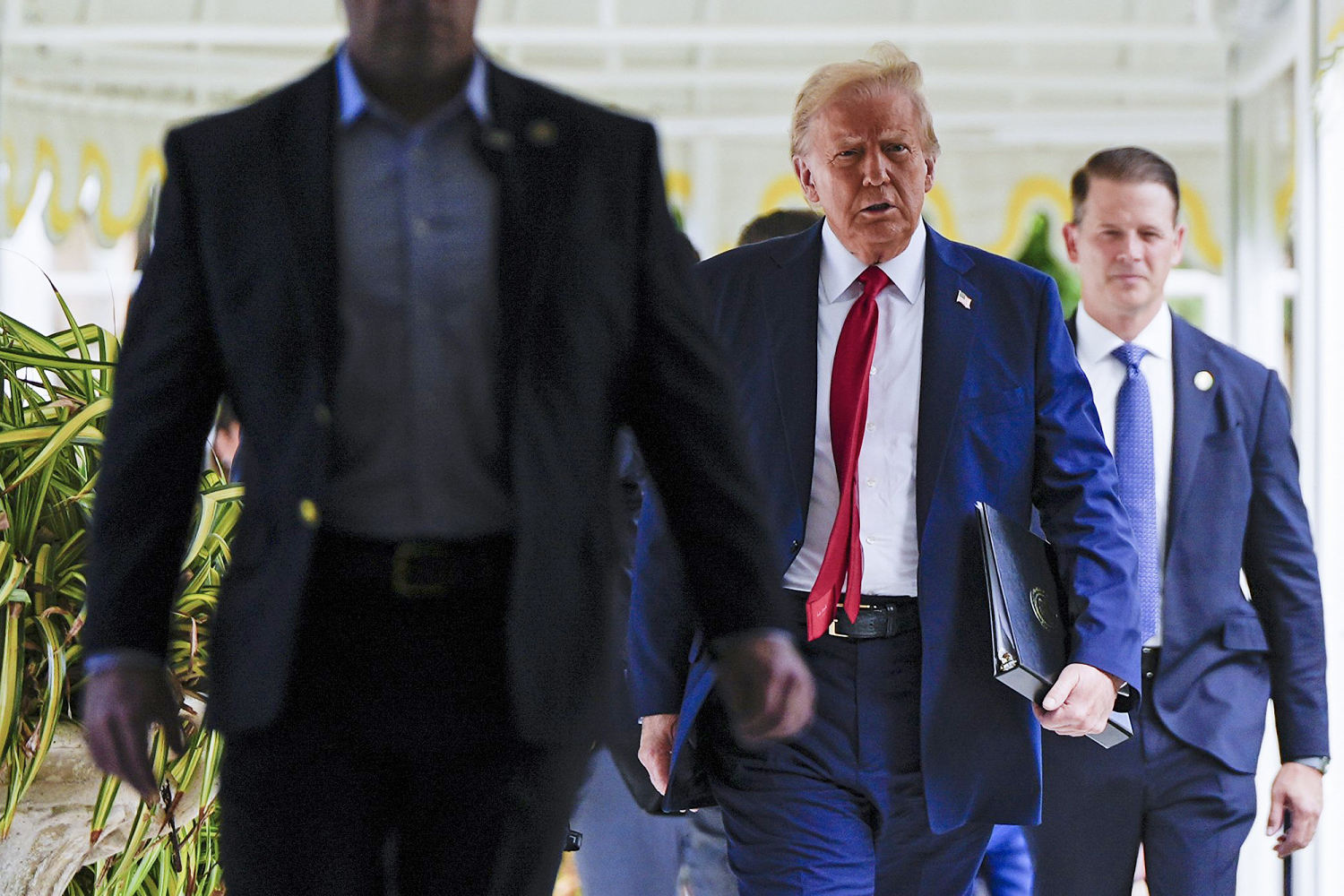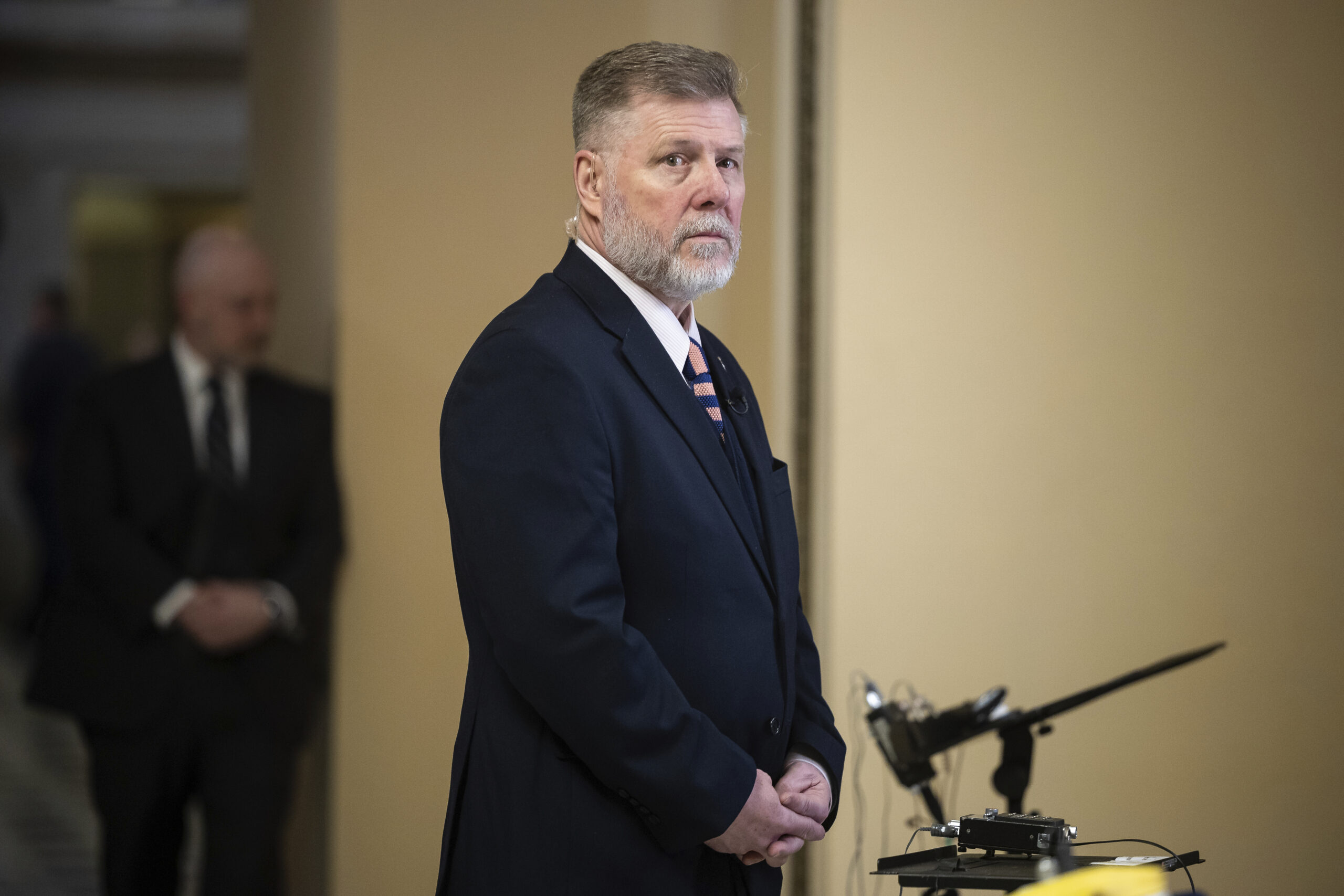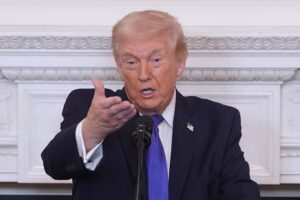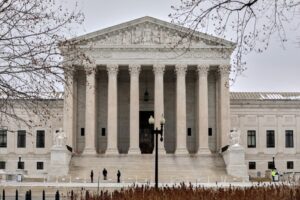Politics
Meet the billionaires cowering to Trump

Moral fortitude has never been a prominent character trait of the obscenely wealthy. Even so, as the White House remains up for grabs, it has been discouraging to see multiple billionaires and CEOs hedging their bets to avoid being found on a future President Donald Trump’s bad side.
In one light, trying to stay in the good graces of a president is business as usual for the corporate elite. They like to spread out donations between parties, ensuring favor from whoever comes out on top. But banking on a second Trump administration to deliver similar results this time around could prove a bad bet by America’s 1%, one that could leave them bankrupt not just morally but financially, as well.
The obsequious fanboy behavior by Tesla and SpaceX owner Elon Musk is in a category of its own among the billionaire class. But others among his financial stratum have been speaking volumes through their silence. Midwest magnate Warren Buffet and JPMorgan Chase CEO Jamie Dimon, for example, are refusing to endorse either candidate publicly. Even if Trump weren’t a threat to American democracy, you’d think the threat he poses to the health of the U.S. economy would be enough for them to take sides.
The spinelessness on display is even more obvious when it comes to those billionaires who own major media outlets. Los Angeles Times publisher Patrick Soon-Shiong caused an uproar last week when he nixed his paper’s endorsement. It paled in comparison, though, to the outrage directed at Amazon owner Jeff Bezos, whose decision to spike The Washington Post’s endorsement of Harris has caused a mass exodus of the newspaper’s subscribers.
Their decisions are especially telling because of the business their companies has with the federal government.
Their decisions are especially telling because of the business their companies has with the federal government. Soon-Shiong has reason to stay on the good side of regulators with the Food and Drug Administration even if Trump mass fires civil servants to be replaced with cronies. Amazon’s cloud computing contracts with the Defense Department and the National Security Agency alone are worth around $20 billion. Trump also reportedly met with executives from Blue Origin, Bezos’ rocketry company and a rival to Musk’s SpaceX, the same day the Post announced it wouldn’t make a presidential endorsement.
Bezos wrote in an opinion piece published on Monday that he didn’t know about the meeting before it took place. But regardless of the timing, the Blue Origin meeting is an example of big business titans — especially those in Silicon Valley — attempting to ingratiate themselves with Trump in case he wins. There was plenty of discussion about the danger another Trump presidency would present at a recent meeting of the Business Council, a high-level gathering of CEOs.
Two Trump campaign advisers, who went unnamed, recently told the Post that “numerous executives” had been reaching out. One of those advisers hinted at retribution for perceived disloyalty from business leaders, all but warning that their time is running short to appease Trump:
“I’ve told CEOs to engage as fast as possible because the clock is ticking. … If you’re somebody who has endorsed Harris, and we’ve never heard from you at any point until after the election, you’ve got an uphill battle,” the Trump adviser said. “People are back-channeling, looking at their networks — they’re talking to lobbyists to see what they can do to connect with the president and his team.”
Trump has been outlandishly transparent in his promises to various business sectors about how well he’ll treat them once in office. The “quo” in this quid pro quo would be donations to his campaign, in the form of either massive outpourings of cash (as in the case of the crypto cabal) or in-kind contributions such as mailers to voters declaring Trump’s newfound love of the vaping industry.
With Trump, there is no such thing as an ironclad deal that doesn’t benefit him personally.
In one sense, this could be seen as a return to form for America. For much of the 19th century this was how politics worked. The patronage system greased the wheels for robber barons to accumulate fortunes on the backs of poor laborers. A wave of anti-corruption laws were passed in the 20th century, but lax campaign finance regulations have made it easy for tycoons to place their chips on whoever might win regardless of party. And Trump speaks to their long-standing interests in deregulation and massive tax cuts for the wealthy and corporations. But these billionaires might be putting too much faith in the continuation of the rule of law.
With Trump, there is no such thing as an ironclad deal that doesn’t benefit him personally. His appetite for retribution is well-established, and any slight or perceived disloyalty is enough to curry his disfavor. Instead, the system that Trump would preside over would likely more closely resemble how Russian President Vladimir Putin has handled his country’s oligarchs.
After the fall of the Soviet Union, the onetime party apparatchiks who seized control of formerly state-run industries were at one point more powerful than the Kremlin. But over his time in power, Putin brought them to heel, targeting his detractors for arrest and show trials, stripping them of their assets and doling them out to loyalists or pocketing them himself. Billionaires who still exist within Russia do so only through Putin’s grace.
One of Trump’s former officials, Russia expert Fiona Hill, who served on the National Security Council, noted in a recent interview with Politico that Trump “has already made an example of Jeff Bezos, who was punished for his criticisms when Trump was in power previously by Trump trying to deny Amazon major government contracts. That’s exactly a hallmark of an oligarchy or of an autocracy.”
It seems doubtful at this late stage of the game that many of the titans of industry fearful of Trump will heed Hill’s warnings about how Trump’s vision of power can be turned against them. There’s no free market in a world of kings, as there can be no fair dealings in a world where one man’s word is law. There’s likewise no guarantee that Trump will lose, which may be forcing these billionaires to make their own self-preservation paramount. But their willingness to potentially sacrifice the rest of us, and the well-being of the country, in the process is the true mark of cowardice.
Hayes Brown is a writer and editor for BLN Daily, where he helps frame the news of the day for readers. He was previously at BuzzFeed News and holds a degree in international relations from Michigan State University.
Politics
White House wants a reprieve in spy-powers fight that is splitting the GOP

The Trump administration is pushing for a clean extension of Section 702 surveillance authority ahead of an April deadline…
Read More
Politics
White House wants a reprieve in spy-powers fight that is splitting the GOP
The Trump administration is pushing for a clean extension of Section 702 surveillance authority ahead of an April deadline…
Read More
-

 The Dictatorship1 year ago
The Dictatorship1 year agoLuigi Mangione acknowledges public support in first official statement since arrest
-

 Politics1 year ago
Politics1 year agoFormer ‘Squad’ members launching ‘Bowman and Bush’ YouTube show
-

 The Dictatorship5 months ago
The Dictatorship5 months agoMike Johnson sums up the GOP’s arrogant position on military occupation with two words
-

 Politics1 year ago
Politics1 year agoBlue Light News’s Editorial Director Ryan Hutchins speaks at Blue Light News’s 2025 Governors Summit
-

 Politics1 year ago
Politics1 year agoFormer Kentucky AG Daniel Cameron launches Senate bid
-

 The Dictatorship1 year ago
The Dictatorship1 year agoPete Hegseth’s tenure at the Pentagon goes from bad to worse
-
Uncategorized1 year ago
Bob Good to step down as Freedom Caucus chair this week
-

 Politics10 months ago
Politics10 months agoDemocrat challenging Joni Ernst: I want to ‘tear down’ party, ‘build it back up’







